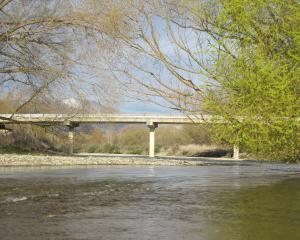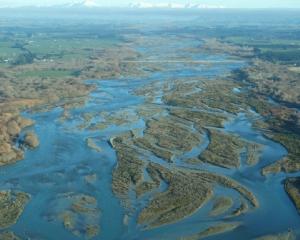Her comments follow a warning from the World Health Organisation and other environmental agencies that drinking water high in the trace element could be a health risk, especially for infants.
Tests on the water from Taieri horticulturist Brian Miller's Riccarton Rd bore showed manganese levels four times higher than New Zealand Drinking Water Standards. Mr Miller warned last month other Taieri property owners with bore water it might not be safe to drink.
However, he said relatively low levels of manganese affected the taste of water and that would probably be enough to prevent people from drinking it.
Dr Poore said manganese was usually obtained from food.
It was regarded as one of the least toxic elements. The limited studies available showed no convincing evidence of toxicity in humans drinking water containing manganese, she said.
"This is an interesting situation for residents on the Taieri Plain and it is up to owners of private bores to monitor the quality of their own water .. ."
"The question I would ask is, who is responsible for maintaining our water quality? If not the ORC, then who?"
He also questioned whether the quality of Taieri aquifer water was being affected by the extraction of too much water.
Two consents for increased takes had been approved by the ORC since 2000, he said.
Wallis' Nurseries had consent to take up to 222,000 litres a day to irrigate its Riccarton Rd property about 500m upstream from Mr Miller's land, and the Dunedin City Council received consent a few years ago to take up to 760,000 litres a day.
Mr Miller said he was unaware of Wallis' consent until recently because it was processed as a non-notified application and neighbours were not given the opportunity to comment.
Dr Threlfall said there was no reason to believe Wallis' water take was having any effect on Mr Miller's water or groundwater.
"When assessing if a take has an effect on other users, a drawdown pumping test is applied. Over a 90-day period, the likely impact on Brian Miller from Wallis' Nurseries is around 0.3m if they were taking the maximum. Consents are normally granted if the drawdown is less than 1m."
Wallis' Nurseries director Clive Wallis said last week it was well known the levels of iron and manganese varied across the Taieri. He had had "no problems at all" with the quality of his water, but said he remembered as a boy his father having difficulty finding a bore site which would provide drinkable water.
Bores had a life span of 20-25 years and it was possible Mr Miller's bore, sunk in 1988, was nearing the end of its life and needed replacing, Mr Wallis said.




